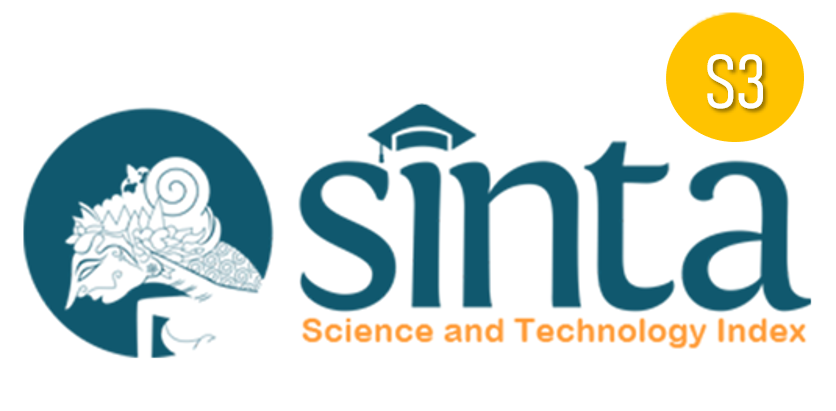What Makes Our Students Demotivated in Learning?
Abstract
This study aimed to determine the demotivating factors in learning. Thus, these students can be assisted in becoming successful in their studies. This study is only to determine the demotivating factors in learning of the Criminology students. The descriptive method of research was employed to determine the demotivating factors in the learning of Criminology students. The study was conducted at Notre Dame of Tacurong College (NDTC) with 90 respondents, of whom 72 were males and 18 females. Purposive sampling and statistical tools were utilized in the study. The results showed that the top three demotivating factors in learning are teachers lecture too much, students have difficulty in accomplishing classwork, and learning activities are not stimulating to hold their attention generally moderately demotivated them in their learning. Teachers play an essential role in motivating or demotivating students in learning. Other top demotivating factors are difficulties in accomplishing class works and classroom instruction. Then, learning activities are not stimulating to hold their attention. Also, all of which are teacher-related factors. It is recommended that the teachers moderately integrate other techniques to involve students in the discussion to prevent them from getting bored in the class. It is vital that students stay motivated to learn to succeed in their studies. This study is an approach to learn demotivating factors as an effort to improve students’ studies.
Keywords
Full Text:
PDFReferences
Aikina, T., and Bolsunovskaya, L. (2020). Moodle-based learning: Motivating and demotivating factors. International Journal of Emerging Technologies in Learning (iJET), 15(2), 239-248.
Alrayah, H. (2018). The Effectiveness of Cooperative Learning Activities in Enhancing EFL Learners' Fluency. English Language Teaching, 11(4), 21-31.
Asadollahi Kheirabadi, M., and Mirzaei, Z. (2019). Descriptive valuation pattern in education and training system: a mixed study. Journal of Humanities Insights, 3(01), 7-12.
Astuti, P., and Lammers, J. C. (2017). Individual accountability in cooperative learning: More opportunities to produce spoken English. Indonesian Journal of Applied Linguistics, 7(1), 215-228.
Chiva-Bartoll, O., Ruiz-Montero, P. J., Capella-Peris, C., and Salvador-García, C. (2020). Effects of service-learning on physical education teacher education students' subjective happiness, prosocial behaviour and professional learning. Frontiers in psychology, 11, 331.
Digal, N. B. T., and Walag, A. M. P. (2019). Self-Efficacy, Study Habits and Teaching Strategies and It’s Influence on Student Science Performance: A Cross-Sectional Study. Asia Pacific Journal of Social and Behavioral Science, 16, 51-76.
Durst, S., and Zieba, M. (2019). Mapping knowledge risks: towards a better understanding of knowledge management. Knowledge Management Research and Practice, 17(1), 1-13.
Gamble, C., Wilkins, M., Aliponga, J., Koshiyama, Y., Yoshida, K., and Ando, S. (2018). Learner autonomy dimensions: What motivated and unmotivated EFL students think. Lingua Posnaniensis, 60(1), 33-47.
Harlen, W., and Deakin Crick, R. (2003). Testing and motivation for learning. Assessment in Education: principles, policy and practice, 10(2), 169-207.
Haryanto, E., Makmur, M., Ismiyati, Y., and Aisyah, S. (2018). The Demotivating Factors of English Language Learning Among Madrasah Tsanawiah Students: The Case of One Madrasah in Jambi City. Edukasi: Jurnal Pendidikan dan Pengajaran, 5(1), 6-21.
Hertzog, C., Kramer, A. F., Wilson, R. S., and Lindenberger, U. (2008). Enrichment effects on adult cognitive development: can the functional capacity of older adults be preserved and enhanced?. Psychological science in the public interest, 9(1), 1-65.
Hyun, J., Ediger, R., and Lee, D. (2017). Students' Satisfaction on Their Learning Process in Active Learning and Traditional Classrooms. International Journal of Teaching and Learning in Higher Education, 29(1), 108-118.
Krawitz, J., and Schukajlow, S. (2018). Do students value modelling problems, and are they confident they can solve such problems? Value and self-efficacy for modelling, word, and intra-mathematical problems. Zdm, 50(1), 143-157.
LaForce, M., Noble, E., and Blackwell, C. (2017). Problem-based learning (PBL) and student interest in STEM careers: The roles of motivation and ability beliefs. Education Sciences, 7(4), 92.
March, J. G., and Olsen, J. P. (1975). The uncertainty of the past: Organizational learning under ambiguity. European journal of political research, 3(2), 147-171.
Ngugi, J., and Goosen, L. (2018). Modelling course-design characteristics, self-regulated learning and the mediating effect of knowledge-sharing behavior as drivers of individual innovative behavior. EURASIA Journal of Mathematics, Science and Technology Education, 14(8), 1-18.
Reyes, E. C. (2017). Infusion of the Critical Tinking in Chemistry through Selected Teaching Strategies. JPAIR Multidisciplinary Research Journal, 29(1), 1-1.
Rodríguez, M., Díaz, I., Gonzalez, E. J., and González-Miquel, M. (2018). Motivational active learning: An integrated approach to teaching and learning process control. Education for Chemical Engineers, 24, 7-12.
Sgrô, F., Barca, M., Schembri, R., and Lipoma, M. (2020). Assessing the effect of different teaching strategies on students' affective learning outcomes during volleyball lessons. Journal of Physical Education and Sport, 20, 2136-2142.
Tanaka, M. (2017). Examining EFL vocabulary learning motivation in a demotivating learning environment. System, 65, 130-138.
Tavoosy, Y., and Jelveh, R. (2019). Language teaching strategies and techniques used to support students learning in a language other than their mother tongue. International Journal of Learning and Teaching, 11(2), 77-88.
Van Leeuwen, A., van Wermeskerken, M., Erkens, G., and Rummel, N. (2017). Measuring teacher sense making strategies of learning analytics: A case study. Learning: research and practice, 3(1), 42-58.
Yelich Biniecki, S. M., and Conceição, S. C. (2016). Using concept maps to engage adult learners in critical analysis. Adult Learning, 27(2), 51-59.
Zhu, J., Dawson, K., Ritzhaupt, A., and Antonenko, P. P. (2020). Investigating how multimedia and modality design principles influence student learning performance, satisfaction, mental effort, and visual attention. Journal of Educational Multimedia and Hypermedia, 29(3), 265-284.
DOI: https://doi.org/10.17509/ijert.v1i2.33409
Refbacks
- There are currently no refbacks.
Copyright (c) 1970 Universitas Pendidikan Indonesia

This work is licensed under a Creative Commons Attribution-ShareAlike 4.0 International License.







.png)




